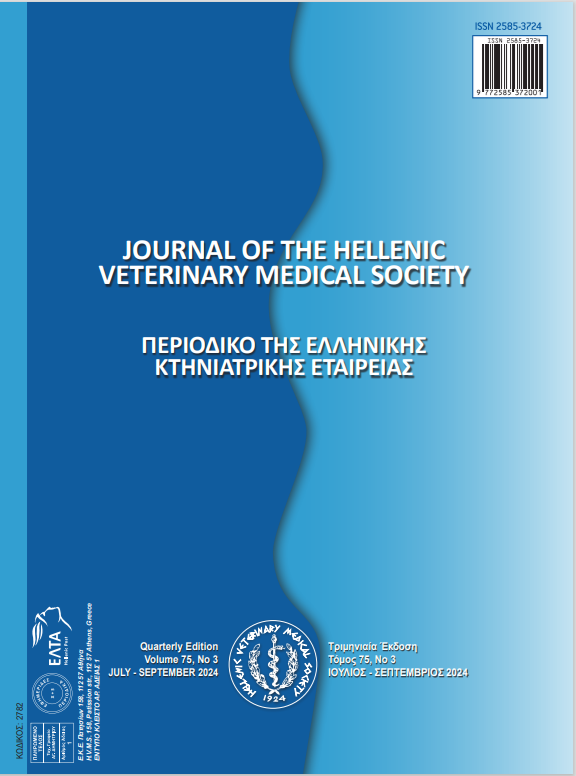Vaginal cytology during the estrous cycle and early pregnancy of ewes
Résumé
Changes in vaginal epithelial cells and blood progesterone and estrogen concentrations were compared between estrous cycle and early pregnancy in multiparous Sanjabee ewes. Twenty non-pregnant ewes were synchronized with intravaginal insertion of a controlled internal drug release (CIDR) device which was in place for 7 days, intramuscular administration of a GnRH analog (Alarelin acetate; 12.5 µg) at the time of CIDR insertion (Day -7), a PGF2α analog (D-cloprostenol sodium; 125 µg) and 500 I.U. of human chorionic gonadotropin (hCG) at the time of CIDR removal (Day 0). At Day 0, all ewes were introduced to four fertile rams and observed for estrous signs. Ewes exhibiting estrous signs were divided into two groups: MATED (confirmed pregnant with transrectal ultrasound scanning at Day 35) and NOT-MATED (confirmed non-pregnant with transrectal ultrasound scanning at Day 35). Vaginal smears and blood samples were taken daily and every other day, respectively, from the beginning of estrus for 20 days for cytology and hormone assay. Based on the results, during days 0 and 1 of the estrous cycle, only the percentages of intermediate cells differed between the groups (P < 0.05). During days 2 to 4, there was no difference in the cell populations between the groups (P ≥ 0.05). During days 5 to 16, the percentages of all cell types except the parabasal cells differed between the groups (P < 0.05). During days 17 to 20, the percentages of all types of vaginal epithelial cells differed between the groups (P < 0.05). Progesterone concentrations increased gradually from days 0 to 14 of the estrous cycle in both groups, however, they decreased significantly afterward in the NOT-MATED group. Estrogen concentrations changes showed an opposite pattern to that of progesterone in the study groups. Collectively, vaginal cytology can be used as a useful tool in assessing hormonal and physiological characteristics of the female reproductive system and thus provides a more accurate understanding of the physiology of estrous cycle and early pregnancy in ewes, which can be used to improve reproductive management.
Article Details
- Comment citer
-
Haq’qi Qobadi, M., Goli, M., Mohammadi, T., & Cheraghi, H. (2024). Vaginal cytology during the estrous cycle and early pregnancy of ewes. Journal of the Hellenic Veterinary Medical Society, 75(3), 7721–7728. https://doi.org/10.12681/jhvms.34682
- Numéro
- Vol. 75 No 3 (2024)
- Rubrique
- Research Articles

Ce travail est disponible sous licence Creative Commons Attribution - Pas d’Utilisation Commerciale 4.0 International.
Authors who publish with this journal agree to the following terms:
· Authors retain copyright and grant the journal right of first publication with the work simultaneously licensed under a Creative Commons Attribution Non-Commercial License that allows others to share the work with an acknowledgement of the work's authorship and initial publication in this journal.
· Authors are able to enter into separate, additional contractual arrangements for the non-exclusive distribution of the journal's published version of the work (e.g. post it to an institutional repository or publish it in a book), with an acknowledgement of its initial publication in this journal.
· Authors are permitted and encouraged to post their work online (preferably in institutional repositories or on their website) prior to and during the submission process, as it can lead to productive exchanges, as well as earlier and greater citation of published work.



